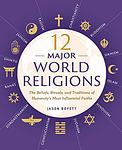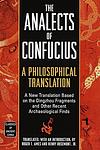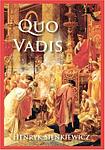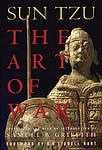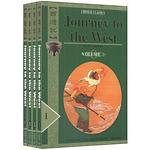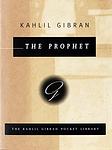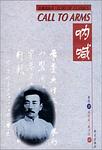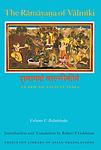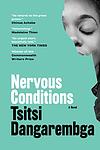The Greatest Non-Western Books of All Time
Click to learn how this list is calculated.
This list showcases a comprehensive and trusted collection of the greatest books from Non-Western literature. Curated through a specialized algorithm, it amalgamates 300 'best of' book lists to present a definitive guide to essential literary works from Asia, Africa, the Middle East, Latin America, and beyond. This selection celebrates the diverse and vibrant literary traditions of the world, offering readers a window into a myriad of fascinating narratives and perspectives. For more information on how these books are selected, please visit the rankings page.
Genres
Date Range
Reading Statistics
Click the button below to see how many of these books you've read!
Download
If you're interested in downloading this list as a CSV file for use in a spreadsheet application, you can easily do so by clicking the button below. Please note that to ensure a manageable file size and faster download, the CSV will include details for only the first 500 books.
Download-
26. Waiting for the Barbarians by J M Coetzee
The novel is set in a small frontier town of an unnamed empire, where the magistrate lives a life of civil service and relative peace. His world is disrupted when the Empire declares a state of emergency due to rumors of barbarian uprising. The magistrate becomes a critic of the Empire's brutal and inhumane methods of dealing with the perceived threat, which leads to his arrest and torture. As he tries to understand his role in the vast political machinery, he also grapples with questions of power, justice, and humanity.
-
27. Solaris by Stanislaw Lem
The novel is a psychological exploration of human limitations and failures set against the backdrop of space exploration. When a psychologist arrives at a research station orbiting a distant planet covered entirely by a sentient ocean, he discovers the crew in disarray, haunted by physical manifestations of their subconscious fears and desires. As he grapples with the ocean's inscrutable nature and its unsettling ability to materialize human thoughts, he is forced to confront his own guilt and regret, embodied by the apparition of his deceased wife. The story is a philosophical meditation on the impossibility of truly understanding alien intelligence and the painful isolation of the human condition.
-
28. The Quran by Unknown
This book is a compilation of the religious text of Islam, believed by Muslims to be a revelation from God. It is divided into chapters, which are then divided into verses. The text discusses various aspects of life and provides guidance on morality, ethics, law, and personal conduct. It also includes narratives of several prophets, their lives, and their interactions with their communities. The book is considered the ultimate source of spiritual guidance for Muslims worldwide.
-
29. Black Beauty by Anna Sewell
"Black Beauty" is a heartwarming and poignant novel that follows the life of a beautiful black horse named Black Beauty. From his early years as a carefree colt to his later life as a loyal and hardworking carriage horse, Black Beauty encounters various owners and experiences both kindness and cruelty. Through his eyes, readers witness the mistreatment of horses and the importance of compassion and empathy towards animals. This timeless classic serves as a powerful reminder of the enduring bond between humans and animals.
-
30. The Savage Detectives by Roberto Bolaño
"The Savage Detectives" is a novel that follows the lives of two Latin American poets, Arturo Belano and Ulises Lima, who are founders of a literary movement called "visceral realism." The book is divided into three parts and is narrated by multiple characters, providing different perspectives on the protagonists. The narrative spans over 20 years, following the poets' journey from Mexico City to Europe, Israel, and Africa, as they search for a mysterious poetess and navigate through the world of literature, sex, drugs, and the complexities of life.
-
31. Analects by Confucius
The Analects is a collection of sayings and teachings attributed to the Chinese philosopher Confucius and his disciples. The book emphasizes the importance of personal and societal morality, filial piety, and the cultivation of knowledge and virtue. Confucius stresses the importance of leading by example and treating others with respect and kindness. The Analects has had a profound impact on Chinese culture and philosophy, and its teachings continue to be studied and applied today.
-
32. Quo Vadis by Henryk Sienkiewicz
Set in ancient Rome during the reign of Emperor Nero, "Quo Vadis" follows the love story of a young Christian woman Lygia and a Roman patrician, Marcus Vinicius. As their relationship blossoms, they must navigate the dangerous political climate of the time, marked by Nero's tyranny and the growing influence of Christianity. The novel provides a vivid depiction of the clash between pagan Rome and the early Christian church, culminating in the Great Fire of Rome and subsequent persecution of Christians.
-
33. The Art of War by Sun Zi
This ancient Chinese military treatise, written by a renowned general and military strategist, is a comprehensive guide on military strategy and tactics. It covers various aspects of warfare, from planning and preparation to execution and aftermath. The work emphasizes the importance of understanding one's enemy, using deception, and adapting to changing circumstances. It also stresses the importance of terrain, morale, and leadership. Despite its military focus, its principles have been applied to business, politics, and other fields, making it a timeless classic on strategy.
-
34. Season of Migration to the North by Al-Tayyib Salih
The novel is a post-colonial exploration of the complex relationship between the East and the West. It tells the story of a young man who returns to his village in Sudan after studying in Europe, only to find that a new villager, a man who has also spent time in the West, has brought back with him a very different perspective on the relationship between the two cultures. The story unfolds as a gripping psychological drama, filled with themes of identity, alienation, and the clash of cultures.
-
35. Journey to the West by Wu Cheng'en
"Journey to the West" is a classic Chinese novel that follows the adventures of a Buddhist monk and his three disciples, a monkey, a pig, and a river monster, as they travel from China to India in search of sacred Buddhist scriptures. Along the way, they face a series of challenges and obstacles, including battling demons and overcoming their own personal weaknesses. This epic tale is a blend of mythology, folklore, and fantasy, and is also a commentary on the practice and principles of Buddhism.
-
36. The Hour of the Star by Clarice Lispector
"The Hour of the Star" is a poignant narrative that explores the life of Macabéa, a poor, unattractive, and naive typist living in the slums of Rio de Janeiro. The story is narrated by Rodrigo S.M., a sophisticated writer who struggles with how to accurately portray Macabéa's simple existence and her tragic fate. The novel delves into themes of identity, poverty, and the human condition, presenting a stark contrast between the lives of the rich and the poor, the educated and the ignorant, and the beautiful and the plain.
-
37. 2666 by Roberto Bolaño
The novel is a sprawling, ambitious work that spans continents and time periods, centering around an elusive, reclusive German author. It intertwines five different narratives: a group of European academics searching for the author, a professor in Mexico dealing with his own personal crises, a New York reporter sent to cover a boxing match in Mexico, an African-American journalist in Detroit, and the horrifying and unsolved murders of hundreds of women in a Mexican border town. The narratives are linked by themes of violence, mystery, and the search for meaning in a chaotic world.
-
38. The Prophet by Kahlil Gibran
"The Prophet" is a collection of poetic essays that are philosophical, spiritual, and, above all, inspirational. The central character, a prophet, is about to board a ship which will carry him home after 12 years spent living in a foreign city. Before he departs, he is stopped by a group of people, with whom he discusses topics such as life and the human condition. The book is divided into chapters dealing with love, marriage, children, giving, eating and drinking, work, joy and sorrow, houses, clothes, buying and selling, crime and punishment, laws, freedom, reason and passion, pain, self-knowledge, teaching, friendship, talking, time, good and evil, prayer, pleasure, beauty, religion, and death.
-
39. The Devil to Pay in the Backlands by Joao Guimaraes Rosa
"The Devil to Pay in the Backlands" is a complex narrative that follows the life of a Brazilian sertanejo (backlands dweller) who becomes a bandit and a feared killer. Tormented by his violent actions, he embarks on a metaphysical journey, wrestling with philosophical and religious questions, and trying to reconcile his deep belief in fate and predestination with his own free will. The book is notable for its innovative language, blending regional dialects with neologisms and classical references, which adds to its rich portrayal of the Brazilian backlands.
-
40. Hopscotch by Julio Cortázar
This avant-garde novel invites readers into a non-linear narrative that can be read in two different orders, following the life of Horacio Oliveira, an Argentine intellectual living in Paris with his lover, La Maga. The story explores philosophical and metaphysical themes, delving into the nature of reality and the human condition, while also examining the struggles of intellectual and emotional life. The second part of the novel takes place in Buenos Aires, where Horacio returns after La Maga disappears, and where he grapples with his past, his identity, and his place in the world.
-
41. Call to Arms by Xun Lu
"Call to Arms" is a collection of short stories that vividly capture the impact of the socio-political upheaval during the early 20th century in China. The narratives delve into the lives of ordinary people, predominantly the peasantry and the lower classes, who are often caught in the throes of societal change and struggle for survival. Through a blend of realism and symbolism, the stories explore themes of tradition versus modernity, the human condition, and the quest for justice, reflecting the author's critical engagement with the national and cultural issues of his time.
-
42. The Posthumous Memoirs of Bras Cubas by Machado de Assis
The novel is a unique and satirical work, narrated by a dead man, Bras Cubas, who recounts his life from beyond the grave. The story is filled with ironic humor and philosophical musings as Bras Cubas explores his past, his relationships, and the societal norms of his time. The narrative breaks conventional storytelling norms, often addressing the reader directly and jumping through time without warning. Themes of love, wealth, power, and the human condition are explored, providing a critique of 19th-century Brazilian society.
-
43. Dream of the Red Chamber by Cao Xueqin
"Dream of the Red Chamber" is a classic Chinese novel that provides a detailed, episodic record of life in the aristocratic Jia family. The story revolves around the love triangle between the family's heir, his sickly cousin, and his other cousin who is raised to be his wife. It is also a critique of the family's decline and a reflection on the societal norms of the time. The novel is famous for its vivid characterization and psychological depth, and its unique portrayal of Chinese society during the Qing dynasty.
-
44. Tao Te Ching by Lao Tsu
This ancient text is a fundamental guide to the philosophy of Taoism, offering wisdom on how to live a balanced, virtuous life in harmony with the natural world and the Tao, the source of all existence. The book explores themes such as simplicity, humility, and non-aggression, emphasizing the importance of understanding and aligning oneself with the Tao. It provides guidance on leadership, personal growth, and spiritual enlightenment, advocating for a life of peace, contemplation, and connection with the universe.
-
45. Ramayana by Valmiki
The book is an ancient Indian epic poem which follows the journey of Prince Rama as he embarks on a quest to rescue his beloved wife Sita from the clutches of Ravana, the demon king. The narrative explores themes of morality, dharma (duty/righteousness), and the struggle between good and evil. The story is not just about Rama's battle against Ravana, but also his spiritual journey and the importance of upholding one's duties and responsibilities.
-
46. The Temple of the Golden Pavilion by Yukio Mishima
This novel follows the life of a young man named Mizoguchi, who becomes an acolyte at a famous Zen temple in Kyoto. Mizoguchi is afflicted with a stutter and a severe inferiority complex, which leads him to develop a destructive obsession with the temple's beauty. As he struggles with his personal demons, his fixation escalates into a desire to destroy the temple. The book is a profound exploration of beauty, obsession, and the destructive nature of ideals.
-
47. Persepolis by Marjane Satrapi
This graphic novel is a memoir that provides a personal account of the author's childhood and young adult years in Iran during and after the Islamic revolution. The story portrays the impact of war, political upheaval, and religious extremism on ordinary people, while also exploring themes of identity, resilience, and the power of storytelling. Despite the harsh realities the protagonist faces, the narrative also includes moments of humor and warmth, providing a nuanced view of life in Iran during this tumultuous period.
-
48. Night by Elie Wiesel
This book is a memoir of the author's experiences during the Holocaust, specifically in the Auschwitz and Buchenwald concentration camps. The narrative focuses on the relationship between a father and son under the most extreme circumstances, the loss of faith in God, humanity, and in each other, and the horrifying reality of the systematic genocide of six million Jews during World War II. The book is a poignant and stark examination of the depths of human evil and the enduring power of hope and survival.
-
49. Half of a Yellow Sun by Chimamanda Ngozi Adichie
The novel is set in Nigeria during the Biafran War, exploring the impact of the conflict on the lives of its characters. The story is told from the perspective of three characters: a young houseboy, a radical university professor, and the professor's wealthy lover. The narrative delves into themes of love, race, and war, offering a vivid depiction of the horrors of conflict and the resilience of the human spirit.
-
50. Nervous Conditions by Tsitsi Dangarembga
"Nervous Conditions" is a semi-autobiographical novel set in colonial Rhodesia in the 1960s. The story follows a young girl from a poor family who gets the opportunity to receive an education after her brother's death. Despite the struggles she faces - including culture shock, racism, and the inherent sexism in both her native and adopted cultures - she perseveres and manages to succeed. The novel explores themes of race, colonialism, and gender through the lens of a young African woman's coming-of-age story.
Reading Statistics
Click the button below to see how many of these books you've read!
Download
If you're interested in downloading this list as a CSV file for use in a spreadsheet application, you can easily do so by clicking the button below. Please note that to ensure a manageable file size and faster download, the CSV will include details for only the first 500 books.
Download

